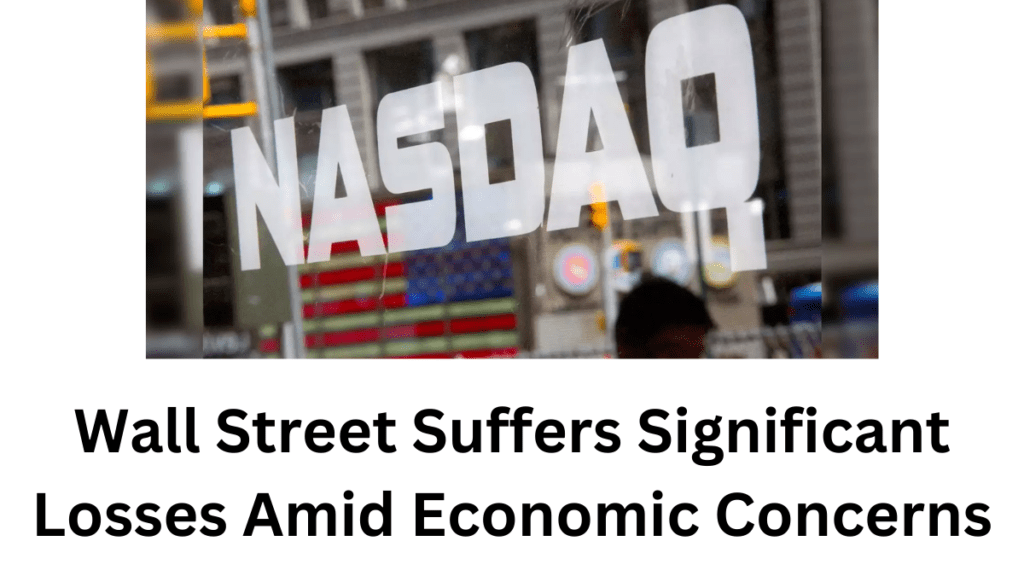On Friday, August 2, Wall Street experienced a sharp decline as US stocks and Treasury yields fell to multi-month lows. This came after a disappointing jobs report raised concerns that the US Federal Reserve might not have acted quickly enough to cut interest rates, increasing the risk of a more serious economic slowdown in the United States.
Weak Jobs Report Fuels Recession Fears
The latest jobs data revealed that only 114,000 jobs were added in the US in July, far below expectations. Additionally, the unemployment rate unexpectedly rose for the fourth consecutive month, reaching 4.3%. These figures suggest that the US economy may be slowing down, causing worry among investors and traders.
Impact on Major Indexes and Big Tech Stocks
The disappointing job numbers, along with downbeat forecasts from major companies like Amazon and Intel, caused a selloff in technology stocks. The Nasdaq Composite index, which is heavy with tech companies, fell over 10% from its peak in July, entering what is known as “correction territory.” This means the index has dropped 10% or more from its previous high.
Other major indexes also suffered. The S&P 500 fell 2.5% in midday trading, heading for its worst day since 2022 and its first back-to-back loss of over 1% since April. The Dow Jones Industrial Average dropped 569.93 points, or 1.41%, to 39,778.04. The S&P 500 lost 119.44 points, or 2.19%, to 5,327.24, and the Nasdaq Composite fell 560.79 points, or 3.26%, to 16,633.36.
Broader Economic Indicators
Other economic indicators released earlier in the week also painted a grim picture. Reports showed a worsening in US manufacturing activity, one of the sectors most affected by high interest rates. The combination of weak jobs data and poor manufacturing reports contributed to increased fears of a recession.
Market Reactions and Federal Reserve Expectations
As a result of these economic concerns, Treasury yields dropped significantly. The yield on the 10-year Treasury note fell to 3.81%, down from 3.98% the previous day and from 4.70% in April. Lower yields often indicate that investors expect slower economic growth or a potential recession.
Market participants now anticipate that the Federal Reserve may need to cut interest rates more aggressively in the coming months to support the economy. Federal Reserve officials have hinted at a potential rate cut in September, and recent economic data has only strengthened traders’ expectations for such action.
Global Market Impact
The downturn in US markets also affected global stocks. The MSCI’s global stock gauge, which tracks stocks across the world, fell 2.26% to 785.26. The global market selloff reflects broader concerns about the potential for a global economic slowdown.
The recent data and market reactions indicate growing concerns about the US economy’s health. Investors are worried about the possibility of a recession, driven by weaker-than-expected economic indicators and the Federal Reserve’s actions. The situation is developing, and market participants will closely watch upcoming economic reports and Federal Reserve decisions.
Read this too – India vs Belgium Hockey Olympics 2024: India Fights Hard but Falls Short, Loses 1-2 to Belgium
People loved to read – How to catch cheaters on iPhone

